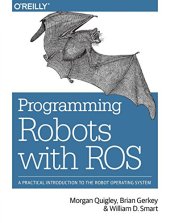
Ebook: Flexible Shift Planning in the Service Industry: The Case of Physicians in Hospitals
Author: Jens O. Brunner (auth.)
- Genre: Physics
- Tags: Operations Research/Decision Theory, Public Health/Gesundheitswesen, Operations Research Mathematical Programming, Organization/Planning, Personnel Management
- Series: Lecture Notes in Economics and Mathematical Systems 640
- Year: 2010
- Publisher: Springer-Verlag Berlin Heidelberg
- Edition: 1
- Language: English
- pdf
The book presents new ideas to model and solve the flexible shift planning problem of personnel workers in the service industry. First, a new modeling approach is proposed that requires shifts to be generated implicitly rather than employing a predefined set of shift types like three 8-hour or two 12-hour shifts to cover varying forecast demand. The objective is to minimize the total cost of the assignments given the general and individual labor restrictions.
Second, to find high quality assignments two solution methodologies are presented. A heuristic decomposition strategy decomposes the problem into weekly subproblems whereas a branch-and-price algorithm that uses several branching rules decomposes the model by worker types. The master problem uses a set covering formulation whereas the subproblems are mixed integer programs. The modeling and solution methodologies are developed and tested using the example of physicians from an anesthesia department of a German university hospital.
The book presents new ideas to model and solve the flexible shift planning problem of personnel workers in the service industry. First, a new modeling approach is proposed that requires shifts to be generated implicitly rather than employing a predefined set of shift types like three 8-hour or two 12-hour shifts to cover varying forecast demand. The objective is to minimize the total cost of the assignments given the general and individual labor restrictions.
Second, to find high quality assignments two solution methodologies are presented. A heuristic decomposition strategy decomposes the problem into weekly subproblems whereas a branch-and-price algorithm that uses several branching rules decomposes the model by worker types. The master problem uses a set covering formulation whereas the subproblems are mixed integer programs. The modeling and solution methodologies are developed and tested using the example of physicians from an anesthesia department of a German university hospital.


















